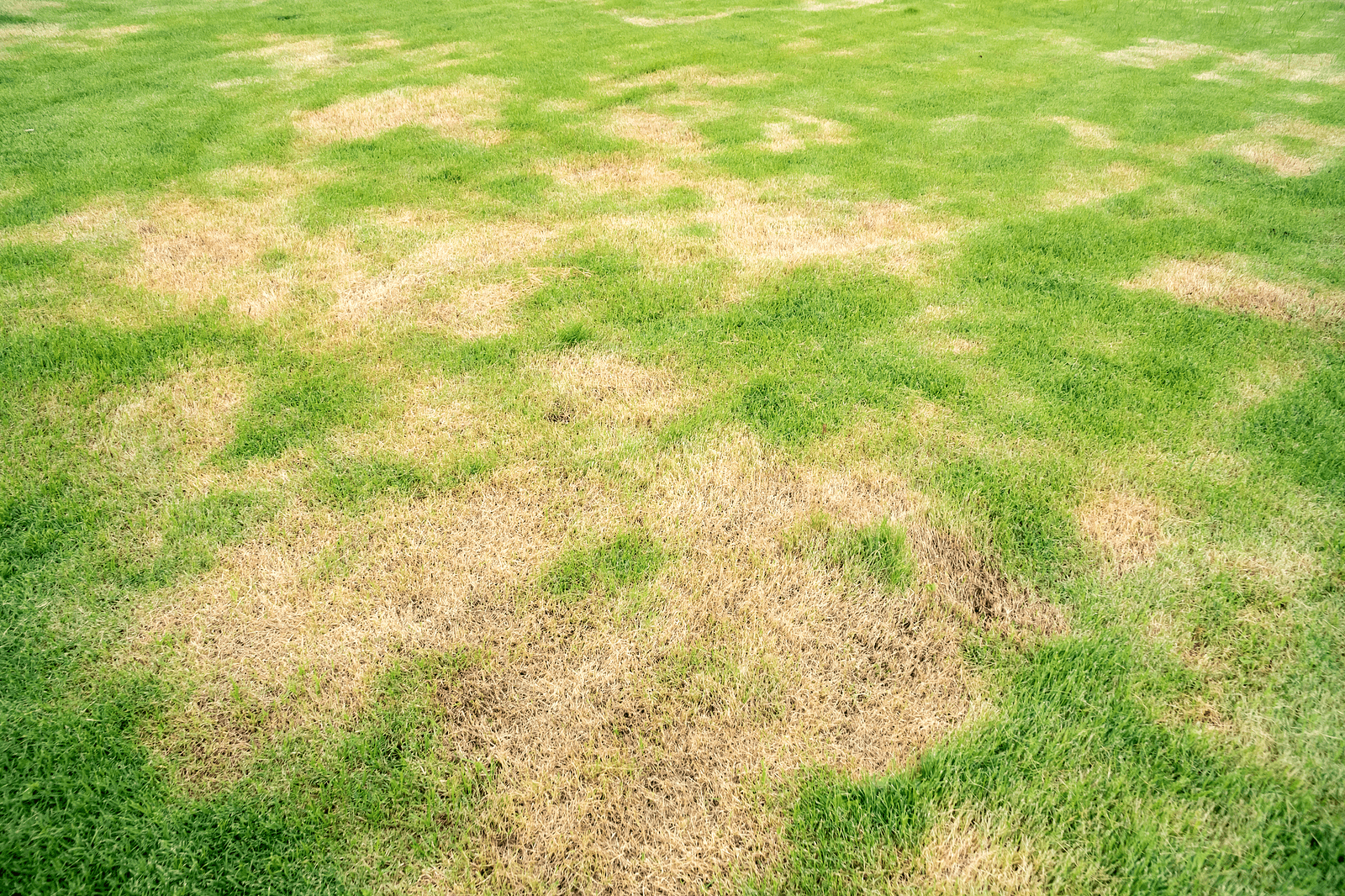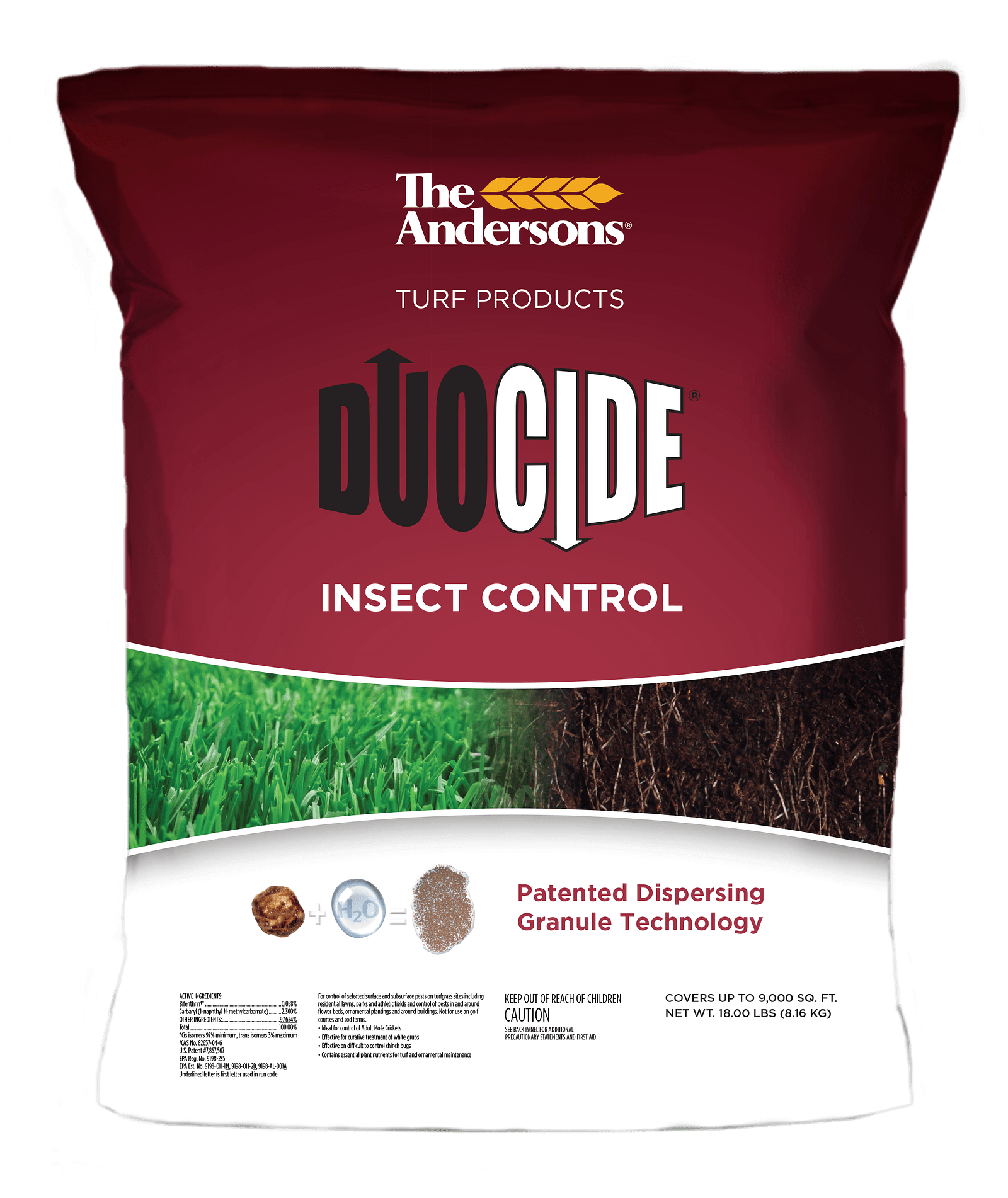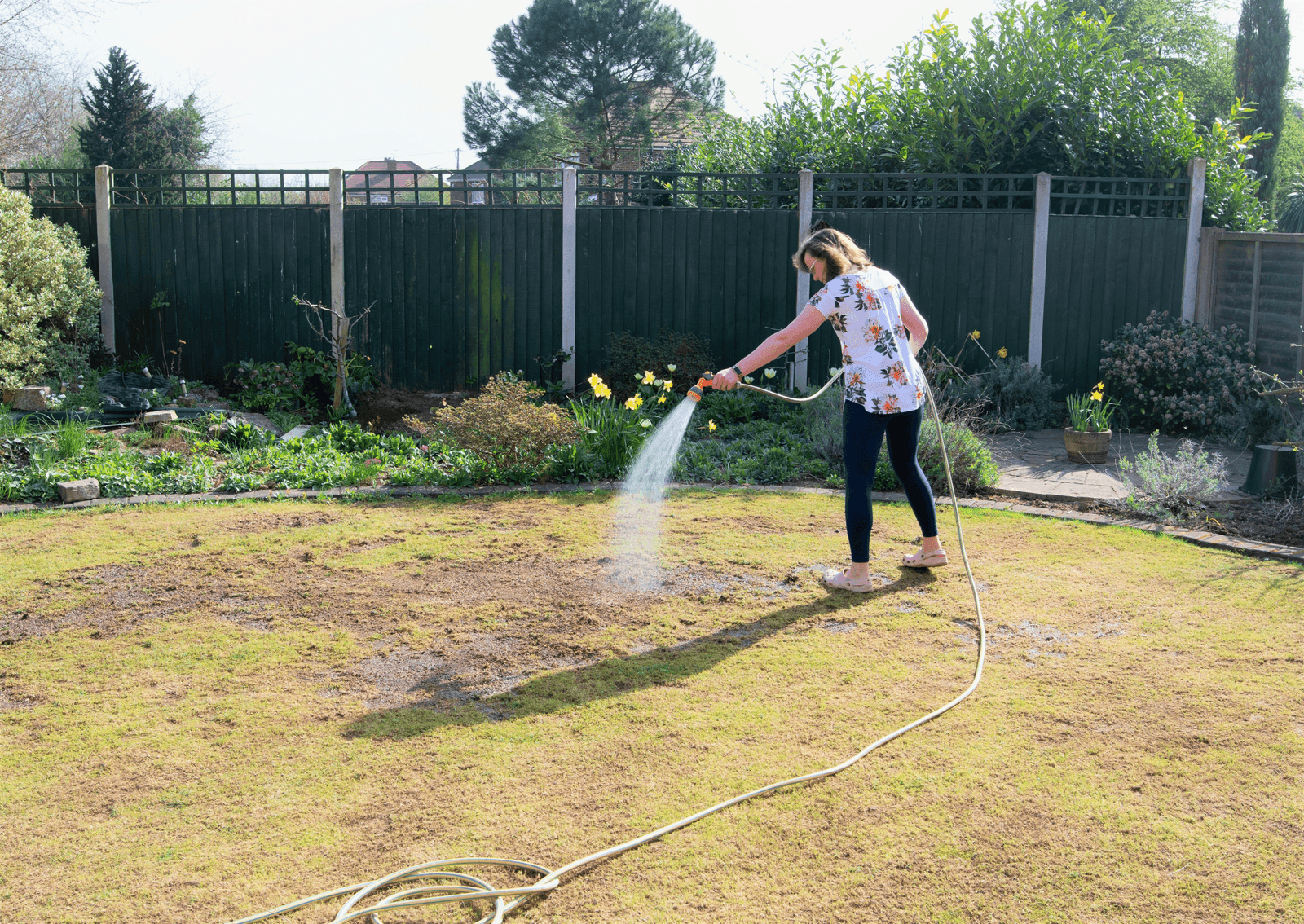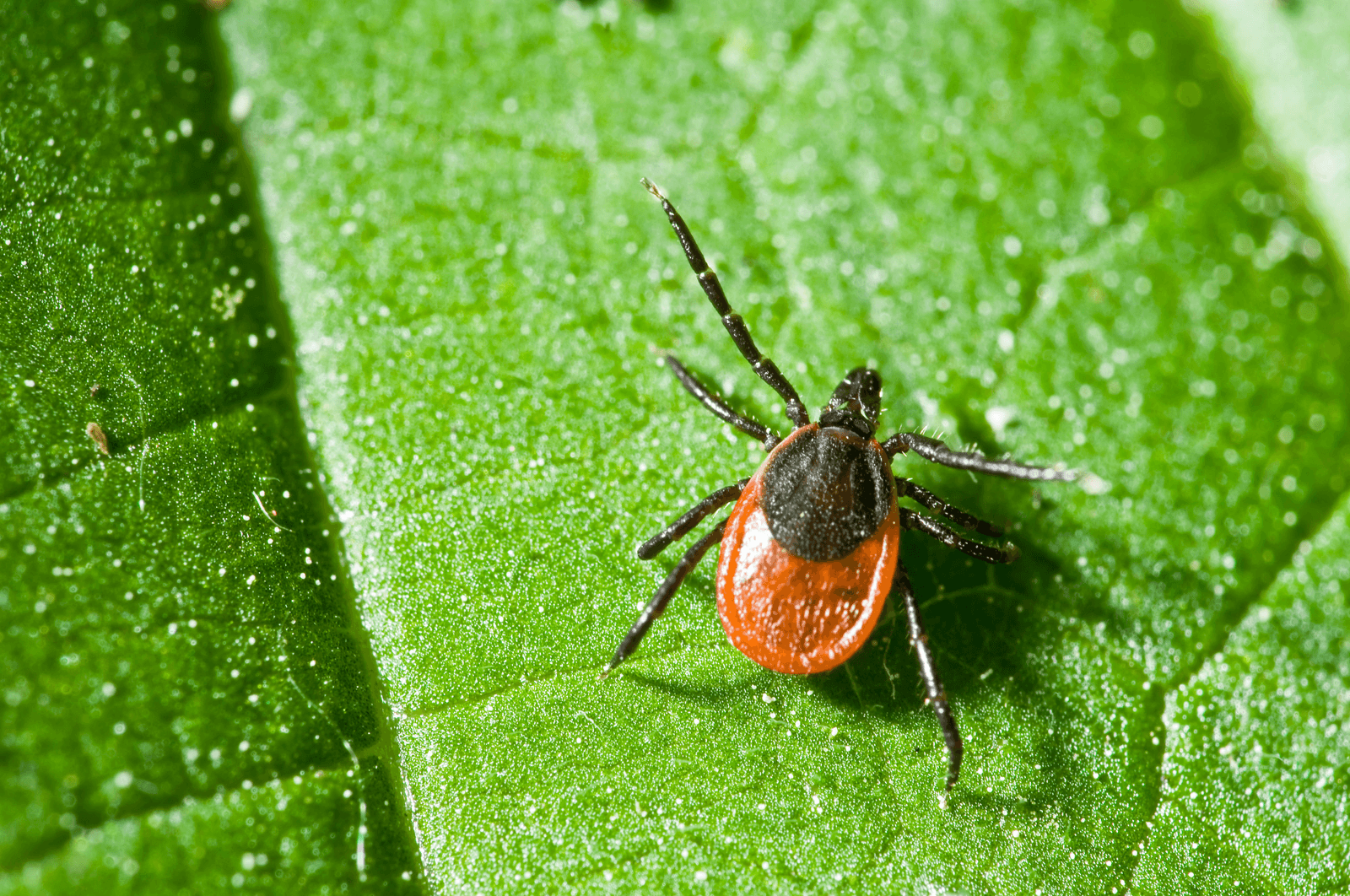During the late summer and fall you may start to see brown patches or loose turf in your lawn. This could be many things but one possible cause you’ll want to consider is armyworms. These caterpillars are called armyworms because they act like an army, moving across your lawn in groups, so you’ll want to act fast.
Armyworms are the larvae of moths that hatch in the spring or early summer.

An increase in gray, two-toned moths around your yard in the spring is a good indicator you should keep a close eye on your lawn for damage in the coming months. Another common indicator is an increase in bird foraging activity in your lawn.
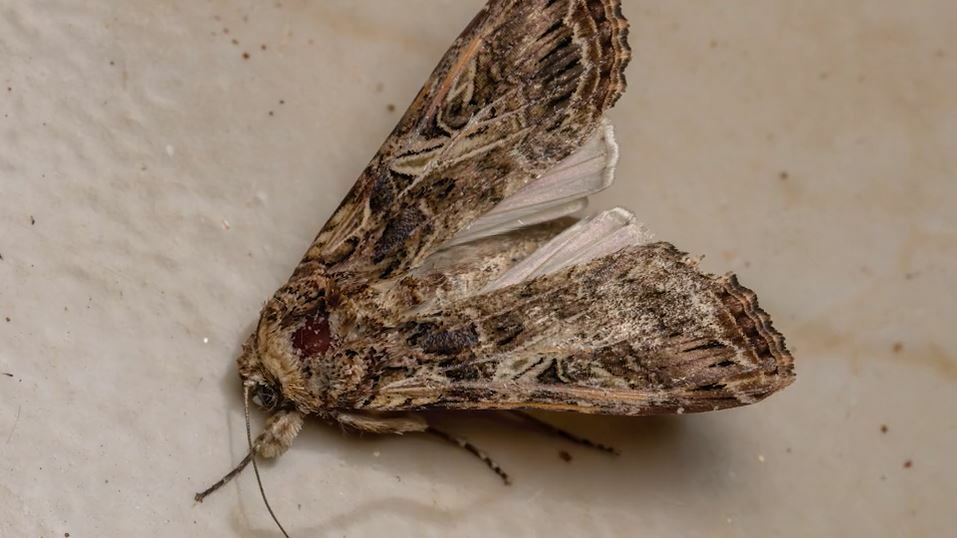
Armyworms hide in the thatch layer during the day and eat at the blades of grass at night, leaving behind turf that may appear dormant or barren. If you look close enough at the blades of grass, you may be able to see the armyworm damage. If you’re not sure if you have armyworms there is an easy way to find out before it's too late.
To detect if you have armyworms, grab a bucket and fill it with water and about a teaspoon of dish soap. Once it's mixed in, submerge an area of your lawn where you suspect armyworms. Within 5 minutes you will see these armyworms come up to the surface. If you don’t see any armyworms after submerging your lawn, there’s a good chance your safe from infestation.

Armyworms can cause significant damage quickly, so you don’t want to delay treating your lawn. We recommend our multi-mode insecticide DuoCide. DuoCide eliminates insects and grubs above and below the surface. So even if the armyworms are in your thatch layer, DuoCide has you covered. When applying DuoCide, be sure to treat the entire lawn and not just the area with visible armyworm damage or where the armyworms surfaced.
Once you’ve resolved the armyworm infestation, you’ll want to be proactive about preventing future infestations. A few simple things you can do to make your lawn less appealing to armyworms is:
- Eliminate armyworm shelter sources by reducing thatch
- Expose armyworm pupae to birds by aerating in the fall
- Keep up with general maintenance so your lawn has a better chance of recovering from armyworm damage
To learn more about DuoCide, visit DuoCide Insect Control: The Nitty-Gritty and Above and Below Insect Control
